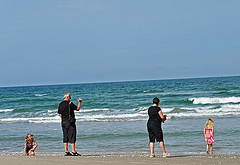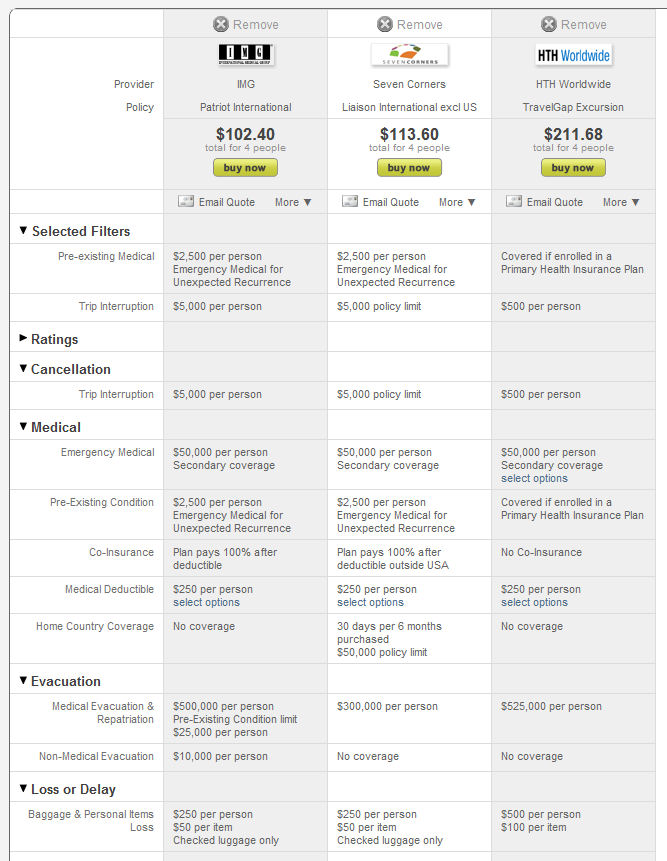 Having kids is an unpredictable adventure – full of surprises, turns and twists. Whether you take your kids with you or leave them behind, there are a number of ways your kids can ruin your next trip.
Having kids is an unpredictable adventure – full of surprises, turns and twists. Whether you take your kids with you or leave them behind, there are a number of ways your kids can ruin your next trip.
1. While riding a rollercoaster, her asthma inhaler goes flying
As your daughter gleefully rides the roller coaster, the inhaler in her pocket flies loose, never to be seen again – how will you replace it before she has an attack?
With the right travel insurance (you’ll need a waiver for pre-existing medical conditions), you’ll have 24-hour travel assistance to get her prescription filled.
2. Your son’s semester is extended due to snow days
Your son’s senior year of high school has been marked by snow storm after heavy snow storm, causing the administration to extend the school year into summer. Can you cancel his summer trip without losing all your pre-paid trip costs?
Some travel insurance plans cover trip cancellations for school extensions so you can get 50-100% of your trip costs back.
3. A wandering iguana bites your kid on the arm
When your kid is bitten by a wandering animal, you’ll want to know that bite is properly treated by a medical professional. If you are traveling outside your health insurance network, can you afford to pay the medical bill?
Travel insurance with medical coverage is essential for overseas trips, but it’s also very useful for domestic trips where you are traveling outside your health insurance network. A travel insurance plan with adequate medical coverage means that physician’s expenses, drugs, stitches, and more are covered.
4. That virus going around school finally strikes
When your kid spikes a fever just before your vacation, you can’t put them in the car or on a plane. You’ll also want to be near your kid’s regular doctor to fight the virus, so you’re going to have to cancel that vacation.
Travelers have to cancel their trips for all kinds of reasons, and the right travel insurance plan will let you cancel your trip within a certain number of days before your  departure and receive up to 100% of your nonrefundable trip costs back.
5. He crashes into a tree and breaks a leg
Your kid has been skiing for several years, but even the most experienced skier makes mistakes. If your kid crashes into a tree and breaks a leg, will you have the right travel insurance coverage for emergency medical transportation to a hospital where he can be treated?
Medically necessary evacuations are expensive, but a travel insurance plan with coverage for medically necessary evacuations can ensure your kid is safely transported to a hospital for treatment.
6. Your Family Called – Your Daughter is in the Hospital
You left the kids behind for some romantic time on an anniversary trip, but your family called and there has been an accident back home. Can you abandon your trip and get home to be with your child in the hospital?
Sometimes a traveler must end their trip and return home, and this is where trip interruption coverage can help. Travelers who have to abandon their trip for a covered reason can be reimbursed for their unused trip costs and rescheduled return airfare as well.








